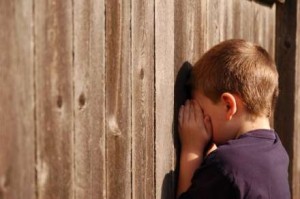
Monks should try to speak as little as possible.
Why silence?
There is an almost constant stream of chatter going through my mind most of the day; there are lists of things to do being calculated, reflections and processing events, creating ideas and writing exercises all being churned away inside my brain as I walk around, sit quietly and even when I pray. It sometimes feels like my brain is producing the Window’s hourglass or Apple’s spinning ball as I process the world around me.
When it comes to prayer, finding a silence in which to encounter and hear from God, is tricky (on some days nearer to impossible!) Before I begin the liturgy I try to quieten the inner chatter using a entering prayer like the Jesus prayer or repeating ‘Maranatha’ slowing my breathing down and settling into a slower rhythm. The chatter begins to slow (if I concentrate) and we begin the liturgy, familiar and comforting; it uses just enough brain power to focus me more and, at times, I fall into the silence.
Of course this doesn’t always happen and the chatter is so overwhelming that I’m lucky if I can even remember the liturgy. It is a common view that we live too frantic lives. I don’t want to add to the reams and reams of paper and the gigabytes of webspace dedicated to showing us all how busy we are and the need to slow down. I’ve said it to myself so often, I’ve heard people tell me, as if it were simple, I’ve preached it from the pulpit and I’ve written it in more than one article; why is it so difficult?
The inner chatter is comforting, I think; it is a form of company in moments of aloneness. We are naturally social animals and we crave companions and so when we are denied that fellowship we fill the emptiness with fictional voices or with our own creative thoughts. Even the dye-hard introverts amongst us fill the silence with dreams and thoughts because, the truth is, the silence is frightening. In the silence we must face our true self without any of correction or pretence; ironically the true self is the last thing we want to see.
If your life is centred on yourself, on your own desires and ambitions, then asserting those desires and ambitions is the way you try to be true to yourself. So self-assertion becomes the only way of self expression. If you simply assert your own desires, you may have the illusion of being true to yourself. But in fact all your efforts to make yourself more real and more yourself have the opposite effect: they create a more and more false self.This self assertion is false because it cuts you off from other people. (Abbot Christopher Jamison, ‘Finding Sanctuary: Monastic Steps for Everyday Life’ (London: Phoenix, 2007) p.85
The discipline set out in the Rule of St. Benedict should never be seen as an end in and of itself for that is a distortion of his intention. Discipline is used in order to steer the monk into a space where they can discover deep truths, hidden from others; it is this space of encounter with God which is the goal. Last week we discussed how cravings for satisfaction can drive us from real discoveries and here it is our inner chatter which is the distraction. Enforcing silence is to create an atmosphere where we are forced to face the silence, to fight through the dread and fear to discover the resurrecting new life beyond the deepest darkness and silence.
Ultimately the only way that I can be myself is to identified with Him in Whom is hidden the reason and fulfilment of my existence. Therefore there is only one problem on which all my existence, my peace and my happiness depend: to discover myself in discovering God. If I find Him I will find myself and if I find my true self I will find Him. (Thomas Merton, New Seeds of Contemplation’ (New York: New Directions, 1972) p.35-36)
The call to true silence is a dangerous journey and should not be rushed into. It is a treacherous path which requires, like all journeys, preparation, the right equipment and knowledge of the route. It doesn’t take much reading on contemplative prayer to know that this is a calling reserved for experienced and specific disciples. This doesn’t deny the rest of us an experience or a seeking after a form of silence but we tread that path with caution.
The rise of mindfulness classes, particularly in urban centres, concerns me. The basis of this, as far as my reading and experience shows, is based in focussing on self and creating a form of vacuum in which to exist. The danger with this, in spiritual terms, is that with no direction we can be seized by anything; demons, destructive thought, wayward emotions, call them what you like. In this way it is as Jesus describes it,
When a strong man, fully armed, guards his castle, his property is safe. But when one stronger than he attacks him and overpowers him, he takes away his armour in which he trusted and divides his plunder…
“When the unclean spirit has gone out of a person, it wanders through waterless regions looking for a resting place, but not finding any, it says, ‘I will return to my house from which I came.’ When it comes, it finds it swept and put in order. Then it goes and brings seven other spirits more evil than itself, and they enter and live there; and the last state of that person is worse than the first.” (Luke 11:21-26)
To return to Thomas Merton’s words, we all seem so desperate to find our true self but this only exists in the existence of God and so, if we want to gaze on our true self, we must gaze on God. The abyss that we discover if we silence the inner chatter should not remain empty for into the vacuum will flood all manner of thing and in the place where mindfulness takes you you’re defenceless against the slippery darkness that can easily overwhelm. God abhors a vacuum and we must, if we are to engage in this sort of prayer, to invite God to fill it; even if it is with ‘the cloud of unknowing’ (a classic on this subject).
This is where the reading of suitable material aids the community into an atmosphere of silence. It may seem contradictory to say, in one breath, be silent, and in the other listen to readings from ‘the Collations, the Lives of the Father or something else uplifting.’ For those of us who struggle with the silence and are not equipped to defend ourselves in the darkness of our own souls, filling the silence with directional material to guide us the treacherous path to the edge of pure silence to gaze on God is considerably helpful.
Reflection
True silence is hard to achieve for it is a form of death. In the centre of it we all discover the existence of God who grants, by knowing Him, knowing our true self, ‘in Whom is hidden the reason and fulfilment of my existence.’
Sometimes prayer, meditation and contemplation are “death” – a kind of descent into our own nothingness, a recognition of helplessness, frustration, infidelity, confusion, ignorance… Then as we determine to face the hard realities of our inner life, as we recognise once again that we need to pray hard and humbly for faith, he draws us out of darkness into light. (Thomas Merton, ‘Contemplative Prayer’ (London: Darton, Longman and Todd, 2005) p.40)
The path to such discovery is a dangerous journey and should not be entered into lightly or without the right spiritual equipment for the task. There are unfriendly foes to battle with, snares and stumbling blocks which can cause you immense damage and pain.
In the context of parish life this form silence is not to be completely ignored rather we should be practising it in order that we can control our inner chatter like we need to control our inner cravings. Discipline in prayer and contemplation leads us to discovery of who we are in God and is therefore, the path to the new life we proclaim.
Creating guided space to begin the process of entering into the silence is essential for nay Christina community. This should be, in my mind, begun with concentrated reading of ‘uplifting’ material: Scripture or spiritual classics such as the Collations or the Life of the Fathers. Each disciple who commits to exploring the inner life must be accompanied by an experienced traveller and these should be made available to each in the form of small groups leaders.
In this way we can begin to form our life together around prayer and study as we resource ourselves for mission and worship.
God of the silence, I invite you into the poverty and emptiness of my life to fill it with your presence by your Holy spirit. Fill the dust of my existence like you did in the very beginning. May I, my false self, decrease as you, my true identity, increase. I step into the silence fearful for it is your awesome presence I seek to gaze upon; that same presence which Moses desired and you blessed him by walking by Him.
Come, Lord Jesus.

 24. What is an encounter with the ‘hidden’ God like?
24. What is an encounter with the ‘hidden’ God like?